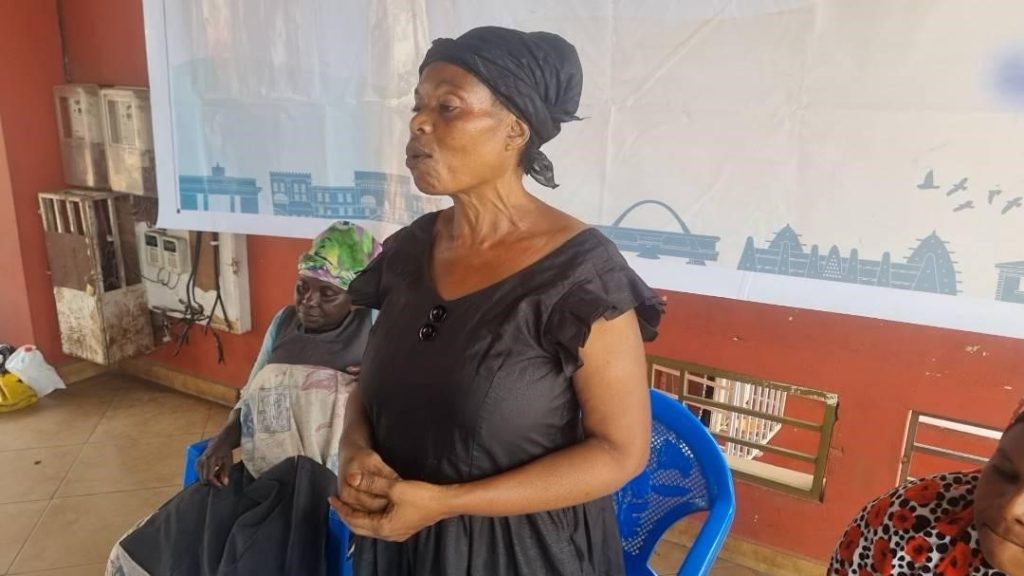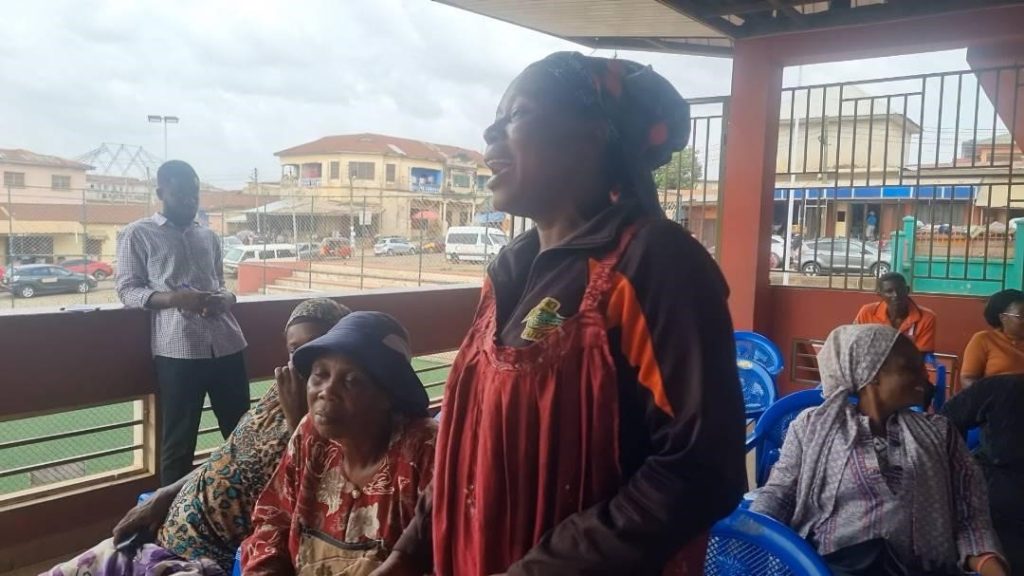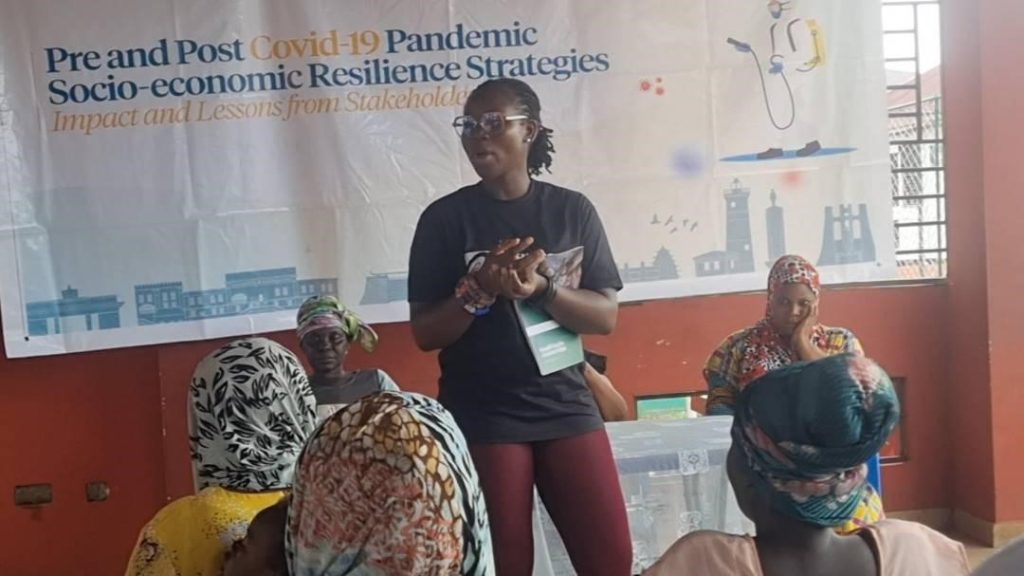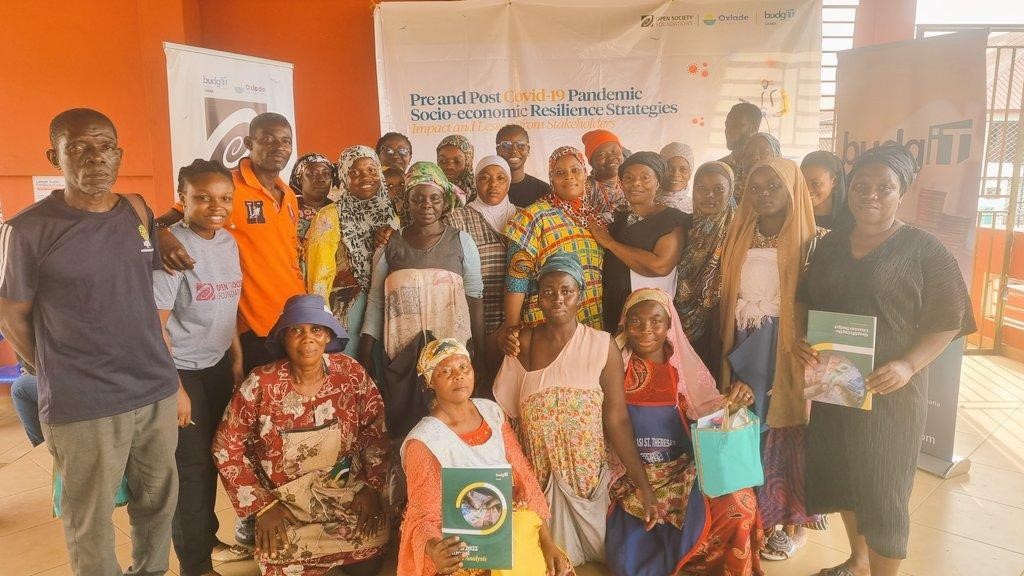The COVID-19 virus’s implications are still being felt in Ghana, as evidenced by health, social welfare, business, and education issues. The financial sector is more sensitive to shocks in formal and informal economies due to policy uncertainty and structural inefficiency. Governments, civil society, NGOs, development agencies, and private citizens have all come together to rebuild the country’s economic resilience after the COVID pandemic. However, as is typical of a nation plagued by politicization, priorities have blurred, hampering recovery efforts.
BudgIT Ghana, in collaboration with Oxlade Consulting and the Open Society Foundation, launched the Open Society Initiative for WEST Africa (OSIWA) project to measure business resilience levels during and after the pandemic, with a focus on businesses led by women, the disabled, and the youth, which falls into the Small and Medium Enterprises (SMEs) sector.
Implementing the project in Ghana, BudgIt organized a series of engagements nationwide to serve as dialogue platforms for the target groups. Ms. Moffatt and Ms. Avevor from the BudgIT Ghana team visited Kumasi in the Ashanti Region on December 30, 2022, and held a town hall meeting under the theme, “Pre and Post-COVID-19 Pandemic Socio-economic Resilience Strategies: Impacts and Lessons from Stakeholders”.

Following a lively radio discussion on Fox FM about the upcoming Town Hall event and the project, we met with the Market women, a few men from Aswansi and Kejetia, and some community leaders at the Kumasi Sub-Metro Town Council Hall.
Introducing the organizations and the project objectives, we engaged participants to test their knowledge of government intervention strategies and the level of support received during the pandemic.
Aswansi’s Market Queen, Maame Hannah Osei, said: “The pandemic was a nightmare. First, we lost our capital to support the family since we were all at home. The government then made funding announcements to assist us with our businesses. Although they registered us, they never got in touch with us.”

Eno Mary, a participant who works as an assistant at Market Queen, spoke about her experiences during the lockdown. “COVID-19 destroyed our businesses. We were all at home, and the markets were quiet, so there was a slowdown. Because of the pandemic, my suppliers couldn’t keep up with their part of the business. It became difficult for us to put food on the table.” She expressed her disappointment with the government’s response to the plight of local businesses during the pandemic.
Antwiwaa, a fruit vendor, expressed dissatisfaction with the ineffectiveness of all promised interventions and palliatives during the pandemic. She asks that the government intervene to support small businesses struggling to build capital and sustain their sales after the pandemic.

We developed a series of questions and distributed the survey to test their understanding of the public support schemes and their levels of participation. The discussions progressed to what government institutions like the Ghana Enterprise Agency (GEA) require of them to enable their businesses to benefit from some of these government interventions.
During the Question and Answer Session, we asked how many people were aware of the government interventions announced during the pandemic and how many benefited from them. It was immediately apparent that people knew about these government support measures but did not benefit from them. None of the participants benefited from the support schemes, which indicates poor service delivery from the government to the people of Ashanti town.

When asked if the impact of the pandemic has jeopardized their businesses’ financial sustainability, the majority (82%) of the respondents claim that the COVID-19 pandemic has indeed affected their various business activities. The rest (18%) were also somehow concerned but were optimistic that they could revive their businesses and attain profitable returns to cater to them.
